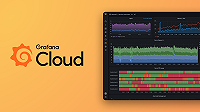Caution
Grafana Agent has reached End-of-Life (EOL) on November 1, 2025. Agent is no longer receiving vendor support and will no longer receive security or bug fixes. Current users of Agent Static mode, Agent Flow mode, and Agent Operator should proceed with migrating to Grafana Alloy. If you have already migrated to Alloy, no further action is required. Read more about why we recommend migrating to Grafana Alloy.
loki.source.api
loki.source.api receives log entries over HTTP and forwards them to other loki.* components.
The HTTP API exposed is compatible with Loki push API and the logproto format. This means that other loki.write components can be used as a client and send requests to loki.source.api which enables using the Agent as a proxy for logs.
Usage
loki.source.api "LABEL" {
http {
listen_address = "LISTEN_ADDRESS"
listen_port = PORT
}
forward_to = RECEIVER_LIST
}The component will start HTTP server on the configured port and address with the following endpoints:
/loki/api/v1/push- acceptingPOSTrequests compatible with Loki push API, for example, from another Grafana Agent’sloki.writecomponent./loki/api/v1/raw- acceptingPOSTrequests with newline-delimited log lines in body. This can be used to send NDJSON or plaintext logs. This is compatible with promtail’s push API endpoint - see promtail’s documentation for more information. NOTE: when this endpoint is used, the incoming timestamps cannot be used and theuse_incoming_timestamp = truesetting will be ignored./loki/ready- acceptingGETrequests - can be used to confirm the server is reachable and healthy./api/v1/push- internally reroutes to/loki/api/v1/push/api/v1/raw- internally reroutes to/loki/api/v1/raw
Arguments
loki.source.api supports the following arguments:
The relabel_rules field can make use of the rules export value from a
loki.relabel component to apply one or more relabeling rules to log entries before they’re forwarded to the list of receivers in forward_to.
Blocks
The following blocks are supported inside the definition of loki.source.api:
http
The http block configures the HTTP server.
You can use the following arguments to configure the http block. Any omitted fields take their default values.
Exported fields
loki.source.api does not export any fields.
Component health
loki.source.api is only reported as unhealthy if given an invalid configuration.
Debug metrics
The following are some of the metrics that are exposed when this component is used. Note that the metrics include labels such as status_code where relevant, which can be used to measure request success rates.
loki_source_api_request_duration_seconds(histogram): Time (in seconds) spent serving HTTP requests.loki_source_api_request_message_bytes(histogram): Size (in bytes) of messages received in the request.loki_source_api_response_message_bytes(histogram): Size (in bytes) of messages sent in response.loki_source_api_tcp_connections(gauge): Current number of accepted TCP connections.
Example
This example starts an HTTP server on 0.0.0.0 address and port 9999. The server receives log entries and forwards them to a loki.write component while adding a forwarded="true" label. The loki.write component will send the logs to the specified loki instance using basic auth credentials provided.
loki.write "local" {
endpoint {
url = "http://loki:3100/api/v1/push"
basic_auth {
username = "<your username>"
password_file = "<your password file>"
}
}
}
loki.source.api "loki_push_api" {
http {
listen_address = "0.0.0.0"
listen_port = 9999
}
forward_to = [
loki.write.local.receiver,
]
labels = {
forwarded = "true",
}
}Compatible components
loki.source.api can accept arguments from the following components:
- Components that export Loki
LogsReceiver
Note
Connecting some components may not be sensible or components may require further configuration to make the connection work correctly. Refer to the linked documentation for more details.



